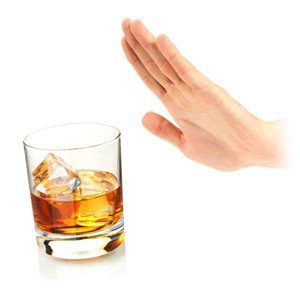Alcohol Withdrawal Detox Management

If you are unable to stop consuming alcohol despite wanting to, or despite negative consequences, you may have become dependent on alcohol.
Alcohol withdrawal syndrome can develop when you suddenly stop drinking alcohol after a period of frequent and substantial consumption, be it vodka, whiskey, wine or beer.
If you try to stop consuming alcohol and experience alcohol withdrawal symptoms, it is chemical dependence. Dependence on Alcohol can develop even after just a few months of intense use. Drinking more alcohol than intended, or drinking alcohol at odd times of the day may negatively impact your relationships, social functioning and work performance.
Alcohol is a disinhibitor and the chances of indulging in risky behaviors increases after alcohol use. If you cannot stop consuming alcohol despite a visible increase in risky behavior, you may have a hard time quitting. Many individuals suffer from a dependence on alcohol – as per the National Institute on Alcohol Abuse and Alcoholism, more than 15 million adults in the United States suffered from an alcohol use disorder in 2015. That number has only increased sharply in 2020 due to stress and isolation related to Covid-19.
Understanding the dangers of alcohol abuse and the dangers of quitting cold turkey can help you make informed treatment choices. Alcohol is one
of the most commonly consumed beverages in the world and it may not be perceived as a “dangerous” substance when compared to, say, heroin,
which conjures up a host of negative images.
However, alcohol withdrawal can be much more dangerous than withdrawal from heroin, as it can cause seizures. Consequently, it is important to seek medical assistance at a detoxification facility when trying to quit alcohol.
What Causes Alcohol Withdrawal?
Alcohol is considered as a ‘sedative hypnotic’ – it depresses the central nervous system, but people benefit from the feeling of relaxation it delivers. In limited quantities, alcohol stimulates good conversation and reduces social anxiety. However, when consumed in large quantities, defined as more than 4 drinks for a man and more than 3 drinks for a woman in a day, could lead to drowsiness, impaired motor function, difficulty breathing and blackouts.
As a depressant, alcohol has an effect on the brain and the nervous system. It also slows down brain function and changes the way nerves communicate with each other. Your body actually works hard to keep the brain in an “awake” state and nerves communicating with each other. It is
used to having alcohol around all the time and is now always in this high alert state.
When you stop using alcohol, the brain keeps going at this 90 miles per hour speed which causes the withdrawal. Alcohol withdrawal symptoms include anxiety, insomnia, shaky hands, headache, nausea, vomiting, and sweating. Some may also develop delirium tremens, hallucinations high blood pressure, and memory loss. Alcohol withdrawal can also bring on seizures, stroke or even death. That is why alcohol detox needs to happen in a medical setting with appropriate monitoring.
Luckily there are many alcohol detox centers in New jersey that can effectively address the problem. Whether you are located in Ocean county, or Morris county, in Short Hills or in Toms River or in Edison, there is always a treatment center near you. Alcohol withdrawal in New Jersey can be treated through outpatient detoxification or inpatient detoxification. While Inpatient detoxification has been the norm for alcohol detox to address alcohol withdrawal symptoms in New Jersey, the new, innovative model is outpatient, ambulatory detoxification. Ambulatory Detox centers in New Jersey can address alcohol withdrawal as effectively and safely as inpatient detoxification, while providing the added advantage of integrating the home environment into treatment. Because the patient has the convenience of going home to their family at the end of each day in detox, they can test the skills learned in therapy and find out what works and does not work. This flexibility delivers better results to the patient because when they finish treatment they have adapted a set of coping skills that is best suited to their own living situation, not a generic one.
Safety is Important in Managing Alcohol Withdrawal
At New Jersey-based Center for Network Therapy NJ, our clinical team is highly experienced in managing withdrawal from alcohol. Customized medication protocols are adopted to ensure that the detox process is safe and smooth.
If you are looking for a safe and highly effective alcohol treatment program, please contact us for a smoother road to recovery. Call a treatment expert today if you or a loved one is experiencing alcohol withdrawal symptoms.
Personalized and safe rehabilitation is extremely important for us at the Center for Network Therapy. If you experience the alcohol withdrawal
symptoms listed below, please don’t hesitate to contact us for a consultation at no cost to you. The Center for Network Therapy has 3 locations: West Orange, New Jersey, Middlesex, New Jersey and Freehold, New Jersey.
Related Articles
Alcohol and Drug Detox and Rehab Centers
Holiday Binge Drinking: 5 Warning Signs of Alcohol Abuse
Five Ways to Deal With Stress While Recovering From Addictions



